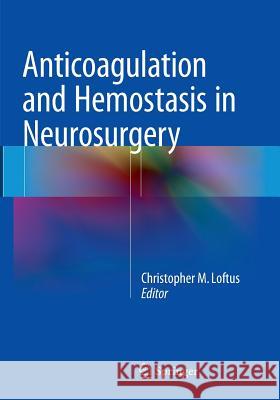Anticoagulation and Hemostasis in Neurosurgery » książka
topmenu
Anticoagulation and Hemostasis in Neurosurgery
ISBN-13: 9783319801162 / Angielski / Miękka / 2018 / 404 str.
Kategorie BISAC:
Wydawca:
Springer
Język:
Angielski
ISBN-13:
9783319801162
Rok wydania:
2018
Wydanie:
Softcover Repri
Ilość stron:
404
Waga:
0.72 kg
Wymiary:
25.4 x 17.78 x 2.16
Oprawa:
Miękka
Wolumenów:
01
Dodatkowe informacje:
Wydanie ilustrowane











